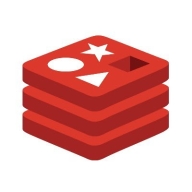

Find out what your peers are saying about MongoDB, ScyllaDB, InfluxData and others in NoSQL Databases.


Redis is a high-performance, scalable, and easy-to-use caching solution that improves application performance. It is also used for session management, real-time analytics, and as a message broker.
Redis's valuable features include its ability to handle large amounts of data quickly, its simplicity and straightforward setup process, and its support for various data structures, providing flexibility for different use cases.
We monitor all NoSQL Databases reviews to prevent fraudulent reviews and keep review quality high. We do not post reviews by company employees or direct competitors. We validate each review for authenticity via cross-reference with LinkedIn, and personal follow-up with the reviewer when necessary.